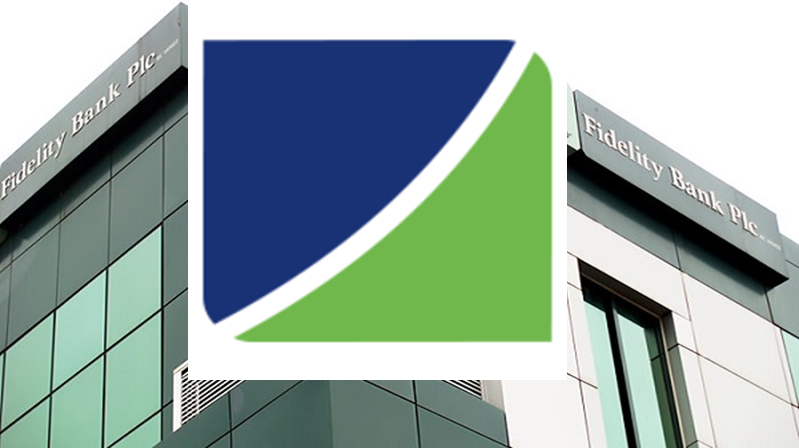May 28, 2018/S & P Global Ratings
We expect that Fidelity Bank will continue to display relatively moderate earnings and stable asset quality.
We are affirming our ‘B-/B’ and ‘ngBB+/ngB’ ratings on Fidelity Bank PLC.
The stable outlook reflects our view that the bank will maintain a broadly stable financial profile over the next 12 months.
S&P Global Ratings affirmed its ‘B-‘ long-term and ‘B’ short-term issuer credit ratings on Nigeria-based Fidelity Bank PLC (FBL). The outlook is stable.
At the same time, we affirmed our ‘ngBB+/ngB’ Nigeria national scale ratings on FBL.
The affirmation reflects our view that the bank will display relatively moderate earnings compared with the sector average, as demonstrated in 2017, and relatively stable asset quality amid a slow economic recovery in Nigeria.
Although an improvement in systemwide U.S. dollar liquidity–due to higher oil prices and increased oil and gas production–has eased the pressure on the country’s manufacturing and trade sectors, some corporate entities still suffer from the effects of the foreign currency shortages over the past 24 months.
The ratings reflect FBL’s modest size and position in the Nigerian banking sector, characterized by a high cost base and sizable funding costs, which have constrained it from competing with certain top-tier banks in terms of profitability.
The bank’s regulatory capital adequacy ratio (CAR) declined to 16% at year-end2017 from 17.2% in 2016, compared with the regulatory minimum of 15%. This was attributable to a Nigerian naira (NGN) 15.2 billion (about $45.6 million) charge on capital for exceeding its single-obligor limit, and the amortization of its subordinated local bond. We expect the single-obligor charge will reduce over the next 12 months as the exposure is settled, and that the bank’s CAR will remain above the minimum requirement of 15%.
We project that FBL’s risk-adjusted capital (RAC) ratio before adjustments for diversification will decline to below 5% and range between 4% and 5% over the next 12-18 months, compared with 5.2% at year-end 2017. The bank’s initial application of International Financial Reporting Standard (IFRS) No. 9 resulted in a NGN28 billion reduction in total adjusted capital as of March 31, 2018.
Our projected RAC ratio takes into account our expectation of low double-digit loan growth, measured underwriting standards, and a naira depreciation, combined with the necessity for growth to counterbalance the decline in government securities. We also anticipate good fee and commission revenue generation (supported by the bank’s digitalization strategy) and a cost-to-income ratio of around 70%.
Over the next 12-18 months, we forecast that the bank’s cost of risk will be higher than historical levels, at around the 1.5% posted at year end-2017, as it implements IFRS 9. As of March 31, 2018, FBL’s nonperforming loans (NPL) had declined to 6.3% of gross loans from 6.6% in 2016, while loan loss reserves accounted for a higher 110% of gross loans compared with 51% at year-end 2016.
The lower NPL ratio is mainly attributable to debt reduction in the upstream oil and gas sector, which we expect will continue over the next 12 months, while the higher coverage was due to the initial IFRS 9 application.
Looking ahead, despite the higher expected coverage ratios, the bank’s high loan concentration and foreign currency exposures remain a concern; at year-end 2017, the top 20 loans accounted for 59% of total loans and foreign currency lending for about 46%. Nonetheless, we see as positive that foreign-currency denominated loans are typically backed by receivables in the same foreign currency.
Notwithstanding the relatively high cost of funding, the bank benefits from a stable funding base and adequate liquidity buffers, which compare well with peers’. On Dec. 31, 2017, the bank’s stable funding ratio was 112% and liquid assets covered short-term wholesale funding 6.9x. However, similar to other banks operating in Nigeria, FBL’s deposit base is confidence sensitive, due toits contractually short-term nature.
The stable outlook reflects our expectation that the bank will maintain its prudent underwriting standards, its CAR above the minimum regulatory requirement despite the IFRS 9 implementation, and adequate liquidity over the next 12 months.
We could lower the ratings over the next 12 months if asset quality deteriorates by more than the sector average, and concentration risk materializes through a default of large exposures.
A positive rating action is unlikely in the next 12 months and would require a material improvement in macroeconomic conditions, coupled with stronger capitalization than we currently expect, with the RAC ratio sustainably exceeding 7%.














